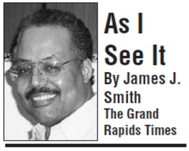John Singleton: Iconic Film Director Gone Too Soon
The great ones seem to have that "IT" factor that is immediately recognizable; you know it as soon as you see it.
That was my impression of John Singleton when I first saw "Boyz n the Hood" back in 1991, a raw gritty story about what life for black youth was like living in South Central Los Angeles.
John Singleton passed away on April 29th in Los Angeles at the age of 51 from complications due to a stroke.
He may have left us too soon; but fortunately for us, he left us and the world, a brilliant film testimony to his directing and storytelling genius.
What John Singleton did was give white people and other non - black people, a peek at what it means to be black in America. He pulled the curtain back and let everyone see what it's like living in the "Hood" in movies like "Boyz n the Hood" and "Baby Boy".
He educated us with the story of "Rosewood" in 1997, the story of a self - sufficient black town in Florida that was burned and destroyed by racist whites in 1923.
With "Poetic Justice" in 1993, he showed the world that young black love happens in the inner city, too.
College life is a time of finding yourself and growing into your own person. "Higher Learning" in 1995, put that and much more on the silver screen for all to see.
John Singleton wanted us to understand that not all lessons in college are learned in the classroom.
He was best known for directing "Boyz n the Hood" for which he was nominated for an Academy Award for Best Director. At the age of 24, he was the first black person and the youngest to have ever been nominated for that award.
Being recognized by your industry as one of its best is a nice accomplishment, but he did something that was much more important. John Singleton told our stories from our perspective based on our truth! Many times, Hollywood tells our stories and they're based on what white people perceive us to be.
John Singleton directed and told our stories not based on perception or stereotypes; he told our stories based on what he knew, not what he thought!
He knew what it was like to see drive - by shootings; he knew how hard it was to raise a black boy to manhood in the dangerous streets of South Central. Nobody had to tell him. He knew from first - hand knowledge!
He once said, "I direct what I know." His films are all reflective of that knowledge.
Could a white director have guided Tupac so masterfully in "Poetic Justice" as he did?
Perhaps, but my money would still be on John.
Black America knows fully what we have lost in the passing of John Singleton, but does the rest of America understand the fullness of this loss?
We lost a great director and storyteller of the black experience; the rest of America lost a presenter of truth.
With John Singleton you got it straight with no chaser; he didn't sugar coat it to make it more palatable. In "Baby Boy", Ving Rhames' character, Melvin, has a conversation with Tyrese's character Jody because Jody acts more like a boy than a man. Melvin tells Jody, "You need to grow up and be a man".
Other words are exchanged that I can't write here and Jody's mother says this, "You are not a baby, you are not a child anymore". That verbal interaction between Melvin, Jody and Jody's mother, had been building throughout the film and John Singleton brought it home as only he could.
When a director can bring a story to life and make it real for those 2 to 3 hours to us the viewers, he or she, has done their job. John Singleton was the master of that. You felt Trey's pain when Ricky was killed in "Boyz in the Hood"; you felt the white anger and racism in "Rosewood" as blacks were being murdered and lynched.
In any John Singleton directed movie, all your emotions get put on display as a result of his direction in taking us where he wants us to go. In reference to "Rosewood", maybe we were uncomfortable or just didn't want to go there, but John took us there anyway. Why? Because even if we didn't want to see and experience it, we needed to!
Personally, I never thought about black women and girls being lynched until I saw "Rosewood" because all the pictures I ever saw were always of black men and boys being lynched.
John Singleton gave me an education on that subject after I saw the movie and that's something I never forgot. The visual of black men and boys swinging at the end of a rope is horrific in and of its self.
To see black women and girls in this manner was really mind - blowing! A John Singleton film was always about teaching and instructing, be it ghetto life or the human condition.
He always worked his magic behind the camera, in order to give us and the world a much clearer picture of black people in front of the camera.
He will be missed as our storyteller and director of our experience, and he will be missed as one of Hollywood's brightest and best.
Tagged in:
